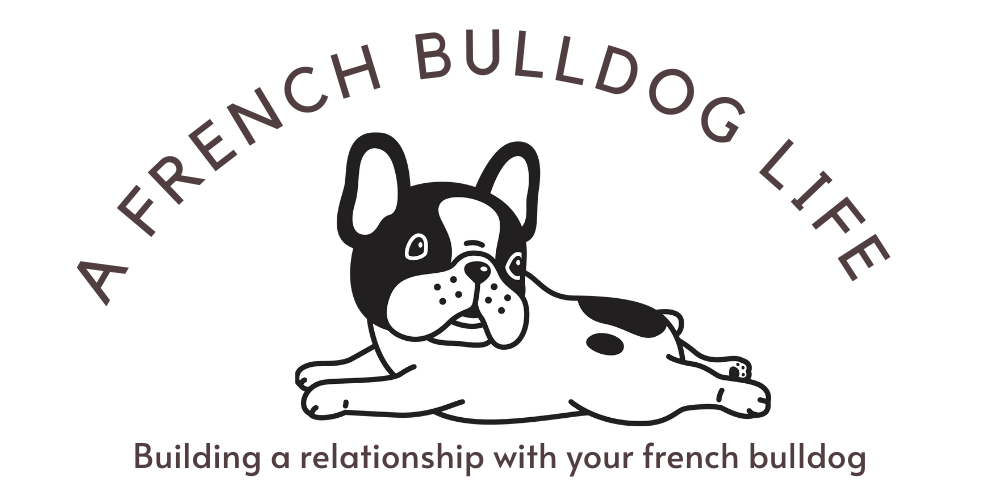Bringing home a new puppy for anyone (let along a new French Bulldog owner) is suuuuuuper exciting!! They are sweet, bouncy, silly, playful, worn out quickly, want to chew things, are curious and most of all – FUN! And knowing that the puppy age is short lived (although sometimes I wonder when I look at my 3 year old frenchie!) you want to take advantage of these special days. Buuut (and yeah sorry, there is a big but!) if you set the house rules early you will have a well behaved French Bulldog (well for the most part) for the rest of their time!. We are big rule setters in our house as I need our furry friends to be a part of the family, not to cause me stress and destroy the house (that’s what kids are for! Kidding!).
So here are some insights from our own thoughts and from experts into setting the expectations from day one!
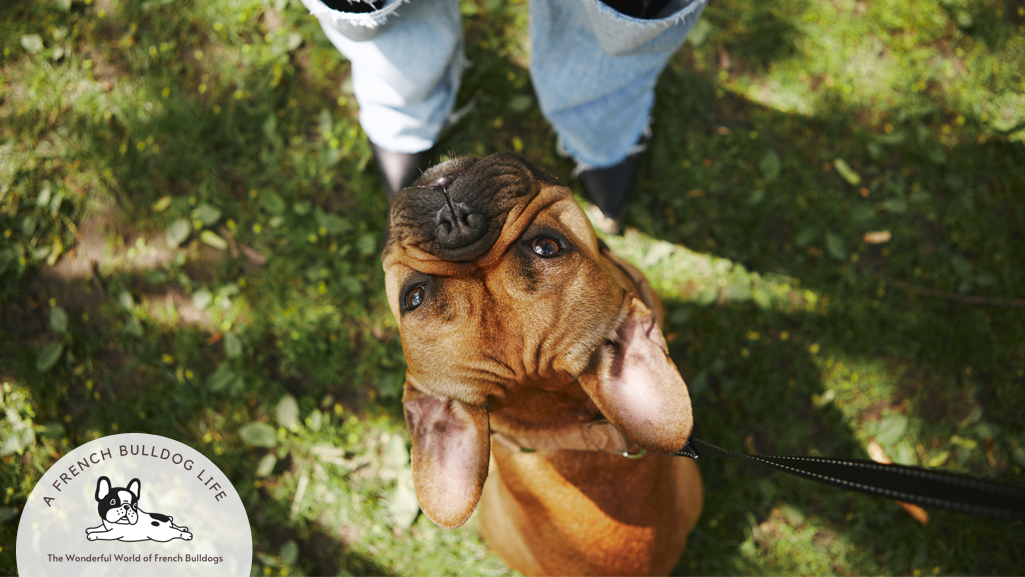
1. Socialisation of your dog
It is important that they are socialised as early as possible, that is, once they have had all of their vaccinations and given the go ahead to mingle with other dogs. We cannot recommend some level of dog training at this stage, because if you are like me, I used to get very afraid of the big dogs and what they might do to my smaller dog! However, through training I was able to gain a lot of learnings about the way dogs react to their owners plus how you can help them socialise and what to expect (yes the training isn’t just for the dogs! lol).
2. Training your French Bulldog
Frenchies aren’t like other dogs that thrive on following instructions and rounding up some sheep (no offence to all those sheep dog owners out there!). Instead French bulldogs love small rewards with a lot of fun, playtime! They are clowns after all and are more likely to keep you entertained than bring you your slippers (note – they may prefer chew your slippers instead!).
Which leads me into the importance of taking your frenchie through the training they need. There are some wonderful training courses out there, both in person and now online, but the main key to take from here is that by using gentle, humanely and positively motivated methods your dog will respond so much better and have the training entrenched. This also makes it much more enjoyable for you too.
Teaching them to sit is a great way to start out from the puppy phase, as it’s important they have manners, after all. Using food as an incentive works for most Frenchies so it’s also important to watch you don’t over feed them when you are in training mode (you can replace the ‘training feed time’ with the meal you would normally feed them instead). It’s important to keep the sessions short to make them impactful and fun. Reinforcing their ‘good behaviour’ with praise, loving pats and using their name will help to cement it.
Either way, don’t put too much pressure on your Frenchie to perform like other dogs.
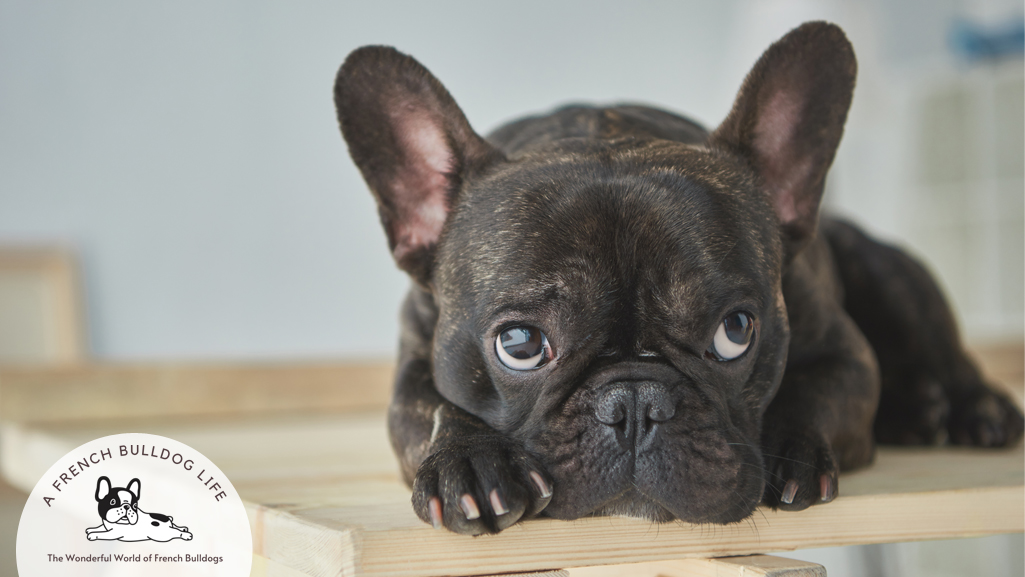
3. Consistency in rule setting
It’s important that you do not let your Frenchie rule the roost. Ha, we know – easier said than done if you’re a French Bulldog owner!! If you live with others it’s important to let them know the rules you have set for your new Frenchie so they will respect and remind them if they are not behaving. This is super important in creating consistency amongst members of the house and thus so your new puppy won’t be confused if one person says no to jumping on the furniture for example, but another member happily invites them up there. We have found that your Frenchie has their own personal space with bed to relax and snooze. In fact, if you have several beds around the house, your Frenchie will always have ‘their own space’ and settle there.
4. Understand the dog laws in your area
It’s important to find out the local ‘laws’ in your area with regards to dogs. They will vary but most areas require dogs to be microchipped and to be under your control. Ensuring that you pick up your dogs poop is law and also a respectable thing to do as a person of your community. Thus always carry poop bags on you when you walk your Frenchie so you don’t get caught out!
5. Avoid begging at the table
We’ve all seen it, dogs hang around the table knowing full well that there is a delicious meal up there that they think they should have a share of (and well I don’t blame them, the smells are always so good when someone else cooks!). But letting your French bulldog beg for food or eat left overs from your plate is just creating bad habits! One thing we do and the rule has stuck, thankfully since the early days, we feed our Frenchie outside just as we are about to eat dinner ourselves and they know they have to wait to come back in until we have finished.
6. Welcoming pattern to stick to
When visitors arrive it can be a mayhem of dogs jumping and people trying to get in the door or take a delivery! The key is to create a welcome pattern such as teaching your frenchie to sit with a treat reward (to reinforce the good behaviour). Also instruct your visitors how to respond as well.
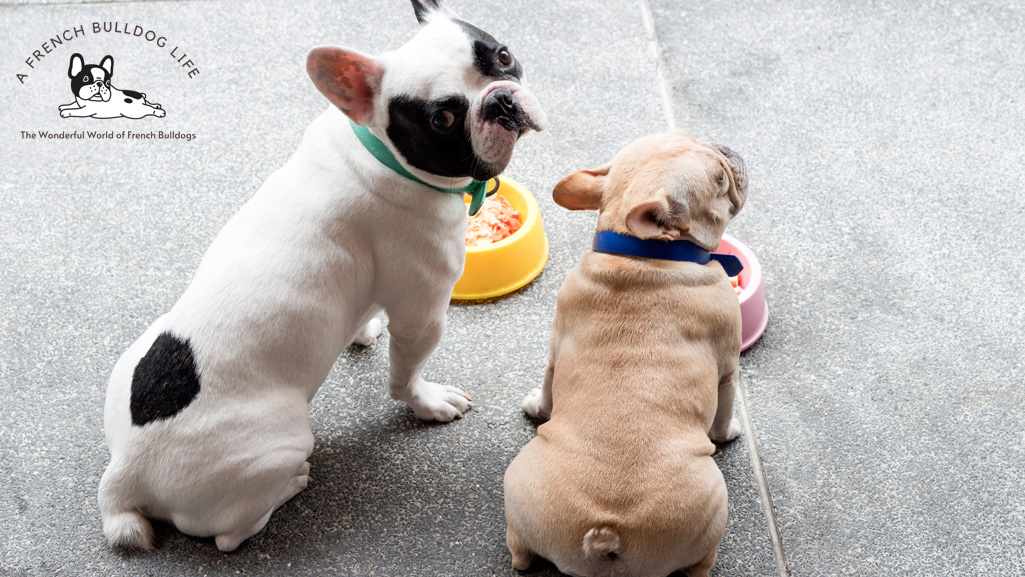
7. Body Language cues & good manners count
Dogs in general are very clever at picking up on body language and it can be more important than words at times. Don’t confuse your Frenchie, keep your body language clear and concise to ensure there are no mixed messages. Using hand signals when training is very helpful for your dog to fully receive the cues they need to act accordingly.
Try this training when it’s dinner time, we ask our Frenchie to “Sit” (they see the back of the hand in front of our face, we put the food in their bowl at this time)
Now say “Watch” (now change your hand to a pointed finger to your eyes so they watch your face for the next cue, placing the bowl on the ground);
Then followed through with a “Yes” (said in a high pitch and the hand drops towards their bowl indicating they can now eat!).
Give it a go and see how they respond. We found we had our pup trained within 3 days using this technique. And we can do it with just hand signals and no voice commands.
8. Simple commands are best
It’s best to keep things really simple for your French Bulldog. Simply to order “sit sit sit” is not effective. They will often tune out and thus what you are saying isn’t ‘real’. So say ‘sit’ once and if they don’t then encourage it to move into the sit position (hold your hand, hold the back of your hand to them looking up, above their head so they are inquisitive enough to sit and see what you may have). Then reward them for doing so. They will soon learn. Backing the positive result with a high pitched ‘yes’ just before rewarding (or using a clicker) will reinforce the movement too.
9. Mixed messages can confuse your Frenchie
When learning commands you are essentially teaching a ‘wild animal’, your Frenchie is still learning to read you, understand what the words you say mean and what that will mean for them. Avoid saying things like “sit down” which will confuse your dog. Say either “Sit” or “Down”. Keep it simple.
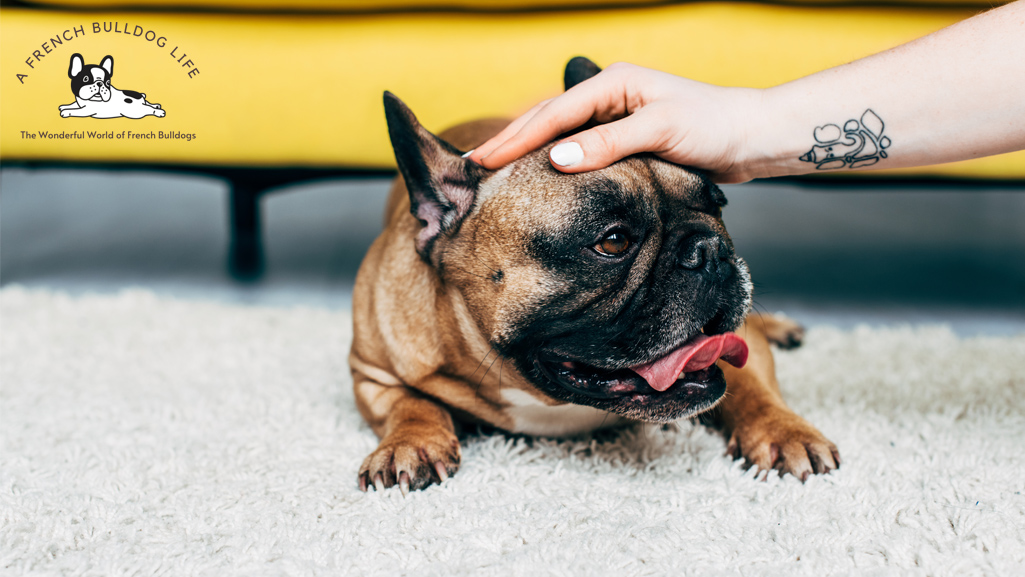
10. Don’t shout commands
When teaching your French bulldog and in everyday life, it’s best to not shout commands. Even when they are unresponsive or particularly independent, using a calm and authoritative tone of voice is preferable instead of a harsh or loud one. Much like us, we humans don’t like to be yelled at, nor do our beloved poochies!
11. Use their name positively when in training
Sticking to one name (that is, not shortened) as well as only using it positively is key to ensuring your dog responds well. Don’t use their name when they are being reprimanded, punished or warned. You want your dog to know when they hear their name, or they are called to you, only good things happen! And it should be used with enthusiasm and never with fear or hesitancy.
12. Never train when you’re tired
Training a dog can be frustrating and tiring. It’s best to allocate the time when you are feeling fresh and ready to help your Frenchie have an enjoyable experience rather than a grumpy, impatient or angry one. Earning your dogs respect will not be earned through yelling, hitting or handling your dog in a harsh manner.
13. Have you communicated effectively?
Letting your dog know what you want, rather than what you do not want is key. For example, if your Frenchie receives lots of attention after they have misbehaved, including negative attention such as shouting and pushing off when they jump, will reinforce their behaviour and will most likely repeat the behaviour. Keep using positive reinforcement with clear messages about what they need to do.
14. Timing is essential for effective dog training
This is underestimated when it comes to training your Frenchie successfully. They should be appropriately rewarded as soon as they do the right thing. Keep small treats on hand to reward your dog but equally, things such as showing them some love with patting and saying their name can also reinforce their behaviour as they want to get your attention. Over time your praise will be as meaningful as treats.
15. Train one Frenchie at a time
It’s best to not do training when another is watching or listening. The other dog is likely to distract you and your dog (in training). It’s better to have your new Frenchie in another private space where you can both concentrate on the training. It’s important that you provide time for both dogs (especially in the early days of your puppy coming home).
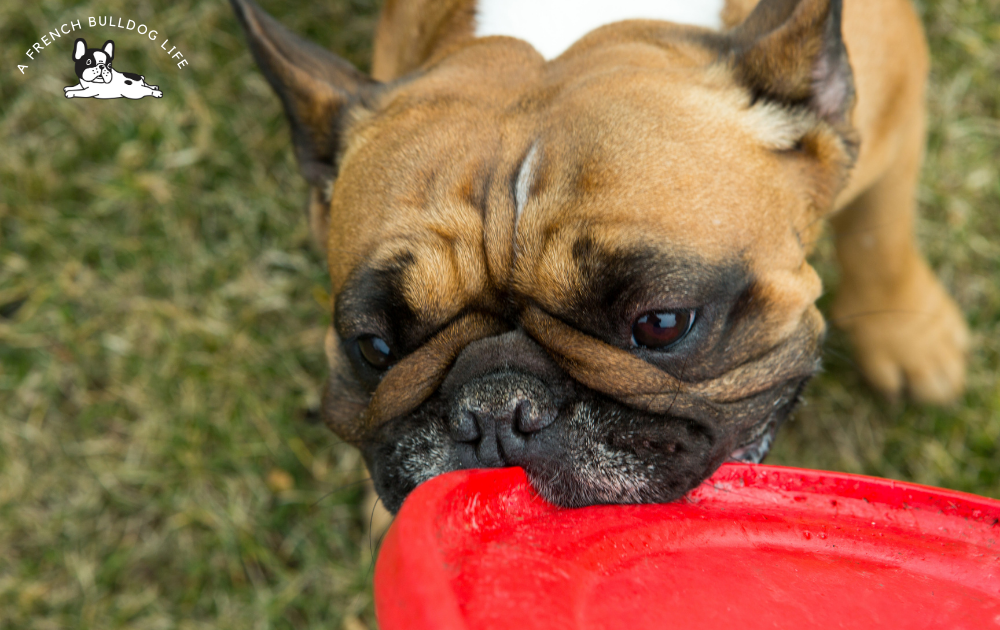
16. Don’t let your Frenchie demand your attention
Letting your Frenchie demand your attention by annoying you to death is reinforcing negative behaviour. Even giving negative attention, such as scolding, can be rewarding for some dogs. To combat this, command them to ‘sit’ before they earn your attention. Frenchies love their owners and thrive on that love being shown to them. So be sure to reward them with extra love when they behave.
17. Engaging them in exercise is rewarding
Much like us humans, dogs that engage in physical activities can result in the release of satisfying brain chemicals. While we like to go for a mountain bike ride for the thrill and physical endurance, our Frenchie loves to chase balls and toys when we toss them to her around the park or backyard. Frenchies are small and due to their inability to self regulate their body temparature it’s important that they aren’t exercised too much, especially in hot weather.
Owning a French bulldog is incredibly rewarding and I don’t know many owners who don’t adore their Frenchie!! But having a well behaved Frenchie is even more rewarding and makes life a lot more fun!
